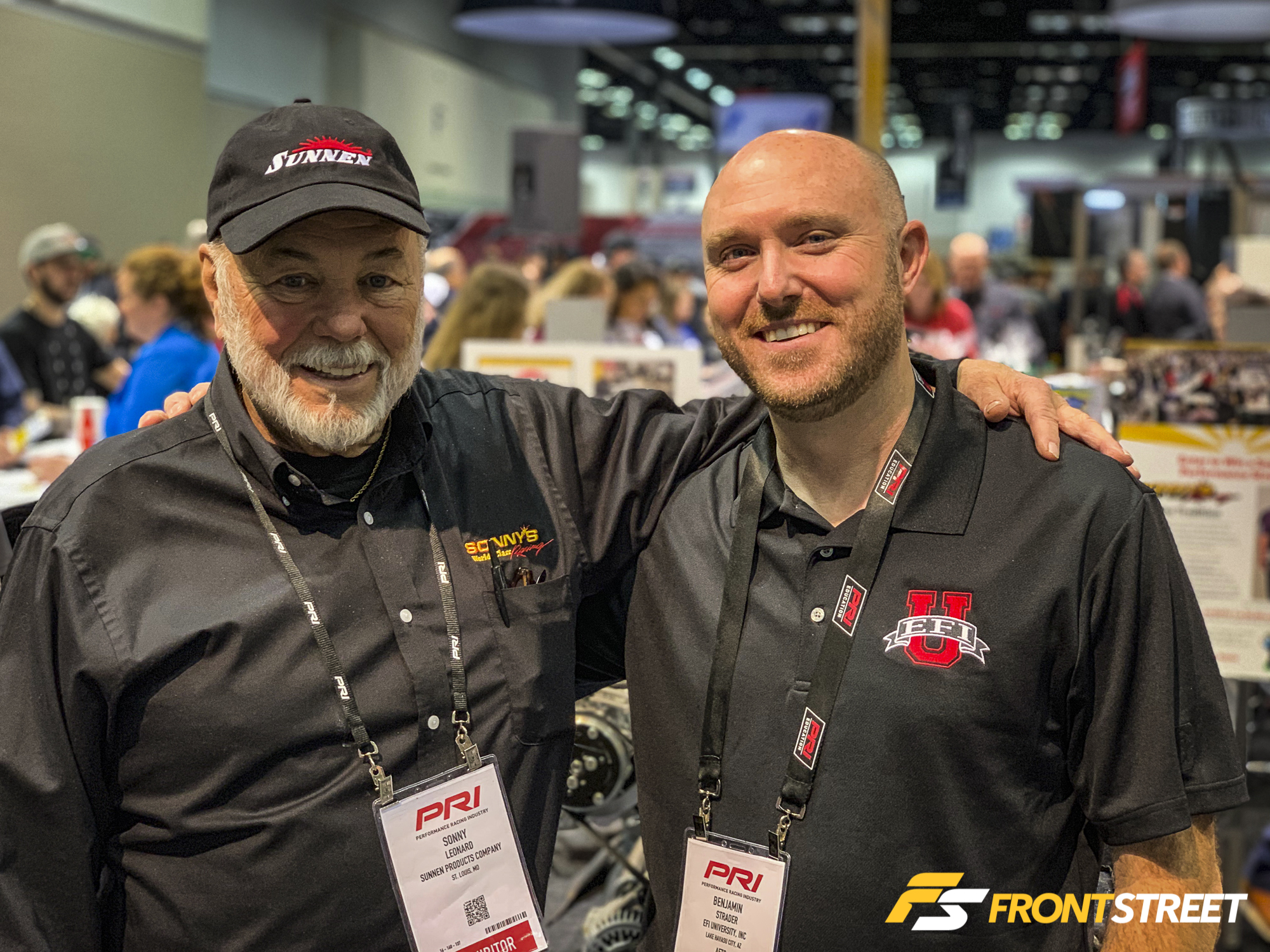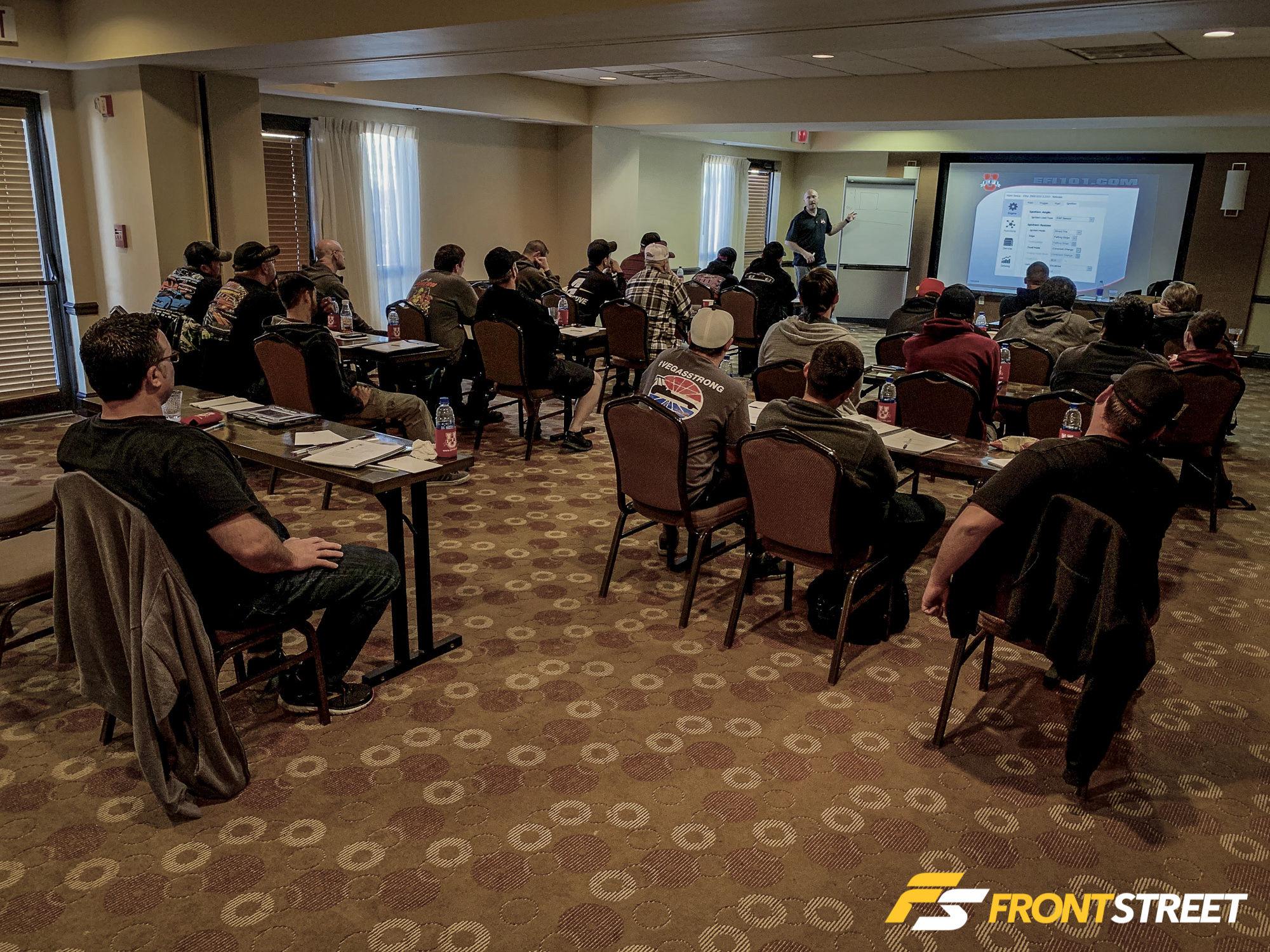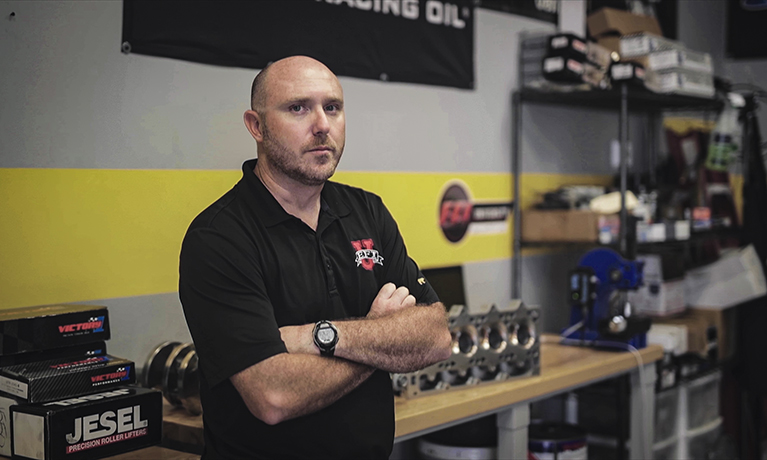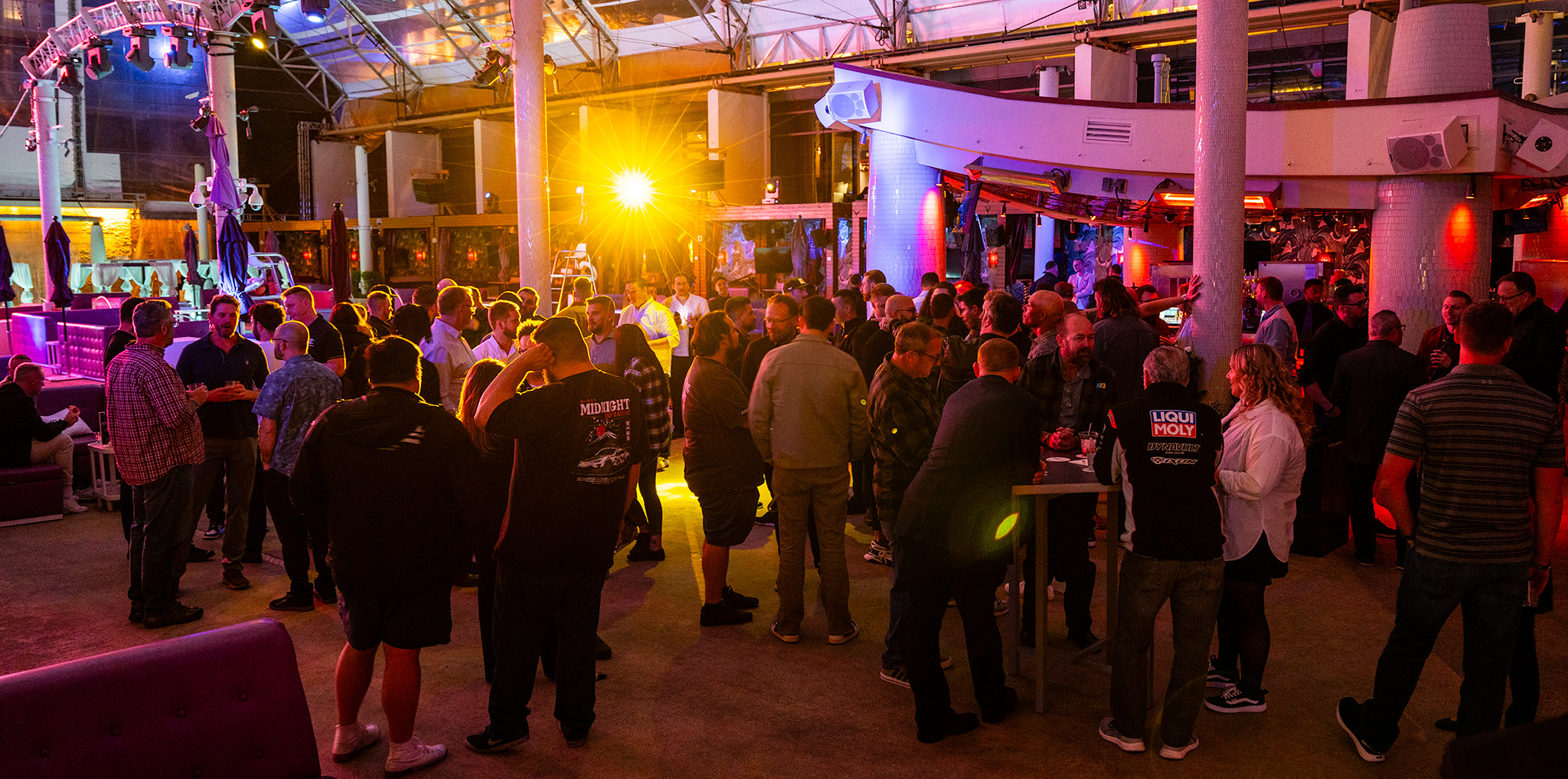Images Courtesy EFI University
So let’s say that you’re a performance shop owner, racer, or automotive enthusiast, and you’re looking to take your skills to the next level. Whether that’s with respect to vehicle calibration or race engine building, Ben Strader and his team of instructors at EFI University have a course of education which can help you.
Ben works with the world’s most accomplished racing teams and calibrators, regardless of racing discipline. Not only does he guide them when it comes to performing championship-winning engine calibrations, but the information superhighway works in both directions, as often he learns from his interactions with the brightest minds in the racing industry.
I’ve worked with Ben and the EFI University guys several times in the past, and when I was planning out this round of One Question I saw that Ben was awarded the Engine Builder of the Year award (shared with the legendary Sonny Leonard, seen below) from the Advanced Engineering Technology Conference.

Ben’s work with Project Spinal Tap—an 11,000 rpm LS engine concept shown in the above video and developed at EFI University in conjunction with Billy Godbold of Comp Cams, also a Front Street contributor—helped him to earn this incredible honor, bestowed upon the greatest minds in the industry.
But those exploits have been documented in several different news outlets over the last few years. I was more interested in a different perspective of his work. So without further rambling on my part, here’s the One Question which I thought would be interesting to hear from Ben’s perspective as an educator.
What is the most difficult thing to accomplish with respect to teaching your students? We suspect most of them probably come in with a large amount of preconceived knowledge they have gained from other sources.
Ben Strader, EFI University: I’d say that probably the most challenging thing for us is overcoming the notion that copying what other racers have done is a path towards success. So much of racing revolves around someone wanting to find a shortcut to winning, and often racers win without really knowing what they did or didn’t do correctly! Engine building and tuning has largely been perceived as a “black art”, because many who enjoy success cannot or will not articulate how or what they’ve done to accomplish their objectives. This spurs the novice to assume there are mystical or magical secrets involved in becoming a pro.
Our approach is to start every student off at the very beginning on the fundamentals, before we assume they know the more complex subjects and work our way up. We focus on the idea that seeing is not believing—it is human nature to make observations and draw conclusions from those observations, but occasionally this leads to trouble. Simply seeing that a racer who won last weekend uses a particular camshaft or carburetor, or any other part and choosing the same parts for our vehicle does’t always mean we will see the same results, because the engine is a complex system of “dependent events” and anything we change has an effect on many other components. There is always a net result that may or may not work out like we expected.

Let me provide an example: Say we have a bone stock engine with stock exhaust and we then install a belt driven supercharger. Let’s say this engine makes 10 psi of boost and produces 500 horsepower.
Now, what happens if we exchange the stock exhaust manifolds, catalytic converter and muffler for a free-flowing system with large tube headers and all the goodies? Well, typically we would see the boost go down and the HP go up because the free flowing exhaust allows more air to flow through the engine, rather than get stacked up in the inlet manifold, right? If I’m not careful I might observe that since the power went up and the boost went down, that less boost always leads to more power. This is because I made an observation (the boost went down, and power went up), and drew a conclusion from that one observation this must ALWAYS be the case…
This might sound absurd at first, but then I would like to point out how often I hear racers say that more boost always makes more power and frankly, this is just as absurd! If we aren’t careful to observe all the variables in a given system and pay attention to which ones have changed, it becomes easy for us to accept a result (especially if it’s one we like) as truth, when we may have simply misunderstood the entire experience and failed to actually LEARN anything!
We believe that “learning” is defined as a “change in behavior based on experience” and it is our job to create a positive learning experience for our students. This means teaching them how to think for themselves to solve problems, rather than accepting the social norms and status quo as being automatically correct.
Thanks to Ben for taking time out of his busy schedule to answer our question! Check out previous installments of One Question content right here.










